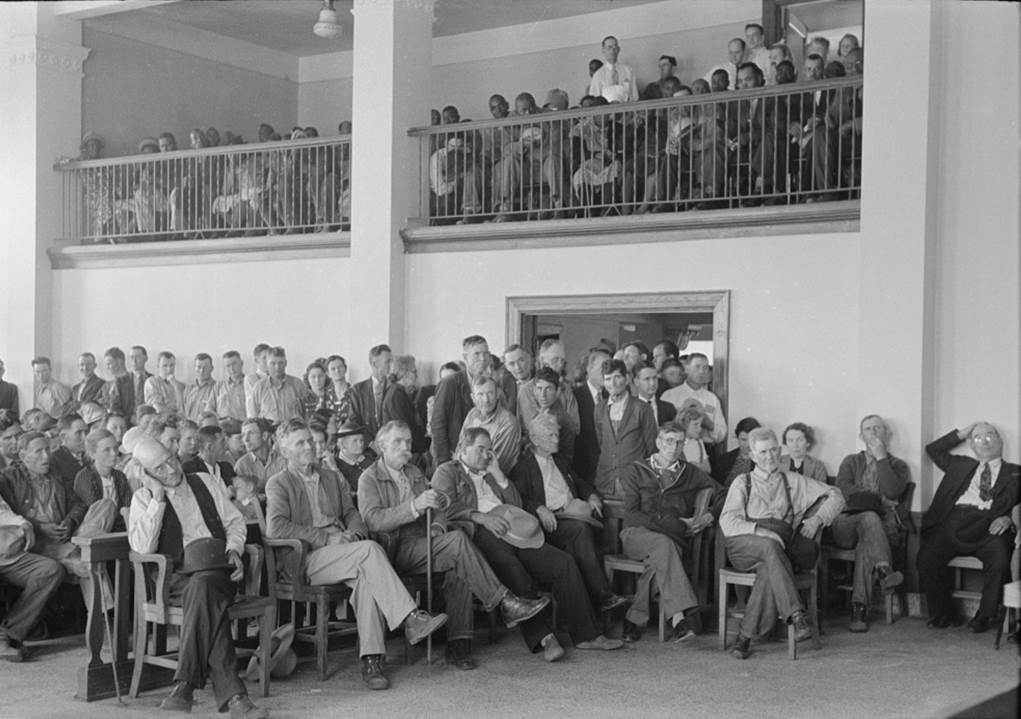 Tuesday, February 9, 2016
Tuesday, February 9, 2016 and how to deal with negative or in appropriate comments and keep sane
If you speak for an organisation it can be easy to take criticism personally. There's a few things you can do.
by Dan Slee
 social media
social media  sign up now for the comms2point0 weekly email. delivered once a week. straight into your inbox. guaranteed to be packed full of good stuff. absolutely no fluff.
sign up now for the comms2point0 weekly email. delivered once a week. straight into your inbox. guaranteed to be packed full of good stuff. absolutely no fluff.
 Tuesday, February 9, 2016
Tuesday, February 9, 2016 If you speak for an organisation it can be easy to take criticism personally. There's a few things you can do.
by Dan Slee
 Monday, February 8, 2016
Monday, February 8, 2016
Someone online has said something critical. How do you respond? Here are some ideas.
by Emily Taylor
 Thursday, February 4, 2016
Thursday, February 4, 2016  Snapchat works well with youunger people. But using it as an organisation? How would that work?
Snapchat works well with youunger people. But using it as an organisation? How would that work?
 Tuesday, January 19, 2016
Tuesday, January 19, 2016  We've come a long way, baby, as country singer Loretta Lynn once sang. Once, the idea of using social media in the public sector was bold and revolutionary. Now it is common place. Perhaps the greatest thing about this is that it puts a human face onto civil servants who are human too.
We've come a long way, baby, as country singer Loretta Lynn once sang. Once, the idea of using social media in the public sector was bold and revolutionary. Now it is common place. Perhaps the greatest thing about this is that it puts a human face onto civil servants who are human too. Monday, January 18, 2016
Monday, January 18, 2016  We're always keen to get fresh perspectives, case studies and ideas. And it's good to look beyond the UK too. So here's a new guest post from the Netherlands.
We're always keen to get fresh perspectives, case studies and ideas. And it's good to look beyond the UK too. So here's a new guest post from the Netherlands.
by David Kok
It’s the beginning of a new year. A time to look forward and set goals for the coming year (if you already did, you might like to change them after reading this blog :-)
It’s 2016 and a lot of local governments appear to think that it’s still 1996. What changes should they realize to get into the 21th century by the end of this year (or century)? Based on my personal experience at local governments in the Netherlands, studies on how cities use social media (UK 2013, around the world 2012) and various interesting books and other literature, I see three major changes local governments must make...
 Tuesday, December 1, 2015
Tuesday, December 1, 2015  Wondering if and where Snapchat might fit into your comms mix? This great case study from a leading social media manager in the Foreign and Commonwealth Office sheds a very helpful light on a platform you may not have yet used.
Wondering if and where Snapchat might fit into your comms mix? This great case study from a leading social media manager in the Foreign and Commonwealth Office sheds a very helpful light on a platform you may not have yet used.
By Steven Hardy
Snapchat - some stats:
- Approximately 50% of users 18 or under
- Real-time images and videos that disappear once viewed
- Messages that only allow 37 characters of text
At first glance Snapchats vital statistics do not appear the ideal fit as tool to communicate the nuances of diplomacy but its relentless growth encouraged some further examination.
 Tuesday, November 3, 2015
Tuesday, November 3, 2015  Before social media, comms was traditionally done by a small team within an organisation. Could a charity challenge help to encourage your staff to use social media?
Before social media, comms was traditionally done by a small team within an organisation. Could a charity challenge help to encourage your staff to use social media?
By GUEST EDITOR Dyfrig Williams
In September, the Staff Charity of the Wales Audit Office took on a mammoth task – to walk the entire coast of Wales in 24 hours. And we did it, all 870 miles of it. Whilst the undertaking of the task was an impressive feat in and of itself, I was also impressed by how our staff used social media to communicate their trials, tribulations and ultimately, their success.
Sign me up!
I may have been the other side of the country, but by following #audittrail15 I could see how staff were getting lessons on using Twitter. Encouraging people to use social media in a hectic work environment can be hard work, but the challenge provided a safe environment for people to try out new technology. The informal aspect also gave the opportunity to try out some different social media tools, like using Vine to share the sights of Ceredigion.
 Tuesday, October 13, 2015
Tuesday, October 13, 2015  It's one piece of advice that really works. Forget the listicles and the fads. It all boils down to some research from Italy in 1896.
It's one piece of advice that really works. Forget the listicles and the fads. It all boils down to some research from Italy in 1896.
by Dan Slee
If I could give you just one piece of advice in looking after a social media profile it’s this: never forget the 80/20 principle.
All the really good social media accounts have it from Asda, a library or a police force. Most of them don’t realise it.
In almost every talk or discussion over the past few years I’ve talked about it.
But what is the 80/20 principle? It’s the balance of doing things with a little variety. It was mentioned in Richard Koch’s book of the same name in the 1990s but in effect is a sharp re-branding from the Pareto Principle from the 19th century Italian management expert Vilfredo Pareto. In this, he noticed that 80 per cent of land was owned by 20 per cent of people. Taking it further, he noticed that 80 per cent of peas came from 20 per cent of plants and his curious mind found the same formula in different places.
 Monday, September 7, 2015
Monday, September 7, 2015  Media law. For years it felt largely like an ever constant. But along came social media and all of a sudden things felt dangerously different. Add some law changes and the landscape has tilted somewhat. One issue? Your staff's social media accounts. With media law consultant David Banks we're running workshops. This is a flavour of why.
Media law. For years it felt largely like an ever constant. But along came social media and all of a sudden things felt dangerously different. Add some law changes and the landscape has tilted somewhat. One issue? Your staff's social media accounts. With media law consultant David Banks we're running workshops. This is a flavour of why.
by David Banks
Just so we're clear, the following are my views alone and do not reflect those of comms2point0.
That's fine then, anything I say on this platform they've given me is my responsibility alone and the good folks at comms2point0 should bear no responsibility for anything I write here.
Here goes. I don't like cake. Not only do I not like cake, I don't like people who like cake. They symbolise all that is wrong with our country, sitting there eating cake when they could be doing something much more useful.
 Thursday, September 3, 2015
Thursday, September 3, 2015  Web 2.0 saw a promise of online collaboration for social good. But is the party over? Or at least, has the shine come off?
Web 2.0 saw a promise of online collaboration for social good. But is the party over? Or at least, has the shine come off?
by GUEST EDITOR Chris Bolton
Way back in 2008 I read ‘Wikinomics’ by Don Tapscott and Anthony Williams, and it pretty much changed my life. At the core of Wikinomics was the idea that the large scale collaboration of people online, was going to change everything we do. The ‘phrase d’jour', was Web2.0; used a lot at the time to describe the ideas around 'online mass collaboration', including what we now recognise as social media.
 Tuesday, August 18, 2015
Tuesday, August 18, 2015  Customer services using social media to meet the needs of customers has been a growing trend for some time. But many organisations are still to crack that nut.
Customer services using social media to meet the needs of customers has been a growing trend for some time. But many organisations are still to crack that nut.
by GUEST EDITOR Nicky Speed
Social media tools offer far greater customer insight than we could've imagined even a couple of years ago. We can respond to posts about services, thank customers with immediate replies and give them useful info about the other great things we do. We can even scour sector hashtags for possible issues.
In short, social media is quickly changing what's expected in today's customer service world.
So why are so many organisations still scared to hand over the reins to their customer service teams to operate social media channels?
 Thursday, August 6, 2015
Thursday, August 6, 2015  Back in the day the 24-hour Twitter event was groundbreaking. But have they moved on? And what do they need to do?
Back in the day the 24-hour Twitter event was groundbreaking. But have they moved on? And what do they need to do?
by Dan Slee
I’ve been thinking for a while that 24-hour Twitter events have driven up a bit of a cul-de-sac.
You know the sort of thing. An organisation tweets what it is doing for 24-hours and shines a light on unsung heroes. You learn things you didn’t know and then the timeline moves on.
Back in 2011, I was part of an award-winning team at Walsall Council that ran this first one in local government called #walsall24. We encouraged teams from across the council from 6am to join in. There was a countryside ranger talking about what she was doing, scheduled road repairs and events at libraries.
 Saturday, June 20, 2015
Saturday, June 20, 2015  Speaking for yourself online is a key skill for everyone no matter what job you do. But should that always be left to PR and comms people?
Speaking for yourself online is a key skill for everyone no matter what job you do. But should that always be left to PR and comms people?
by Anke Holst
Public relations, communications: broadcasting to the world outside what the organisation needs it to know. Social media seems to be an ideal way of doing this, so it's added to all the other channels comms teams know about and serve.
'Go where your audience is.' So far, so good.
 Sunday, May 10, 2015
Sunday, May 10, 2015 We've worked with the Local Government Association on improving social media skills for local government. They're available online. We think you'll like them.
by Dan Slee
One of the great things about technology is a relentless pace of change.
If you're at the bow wave you are always looking ever forward anticipating the next steps.
It would be a huge mistake to think that everyone is at the same place.
 Wednesday, April 29, 2015
Wednesday, April 29, 2015  We've worked with the Local Government Association to produce guidance on how to use social media more effectively. There's advice for organisations, elected members and staff. It's transferrable stuff and it's brilliant...
We've worked with the Local Government Association to produce guidance on how to use social media more effectively. There's advice for organisations, elected members and staff. It's transferrable stuff and it's brilliant...
For many social media is now an everyday part of their lives; something as natural as a phone call or a face-to-face conversation. Twitter, Facebook and the many other digital tools available are now employed to conduct a plethora of tasks: from complaining to utility companies to sharing ideas; from ordering shopping to building networks.
